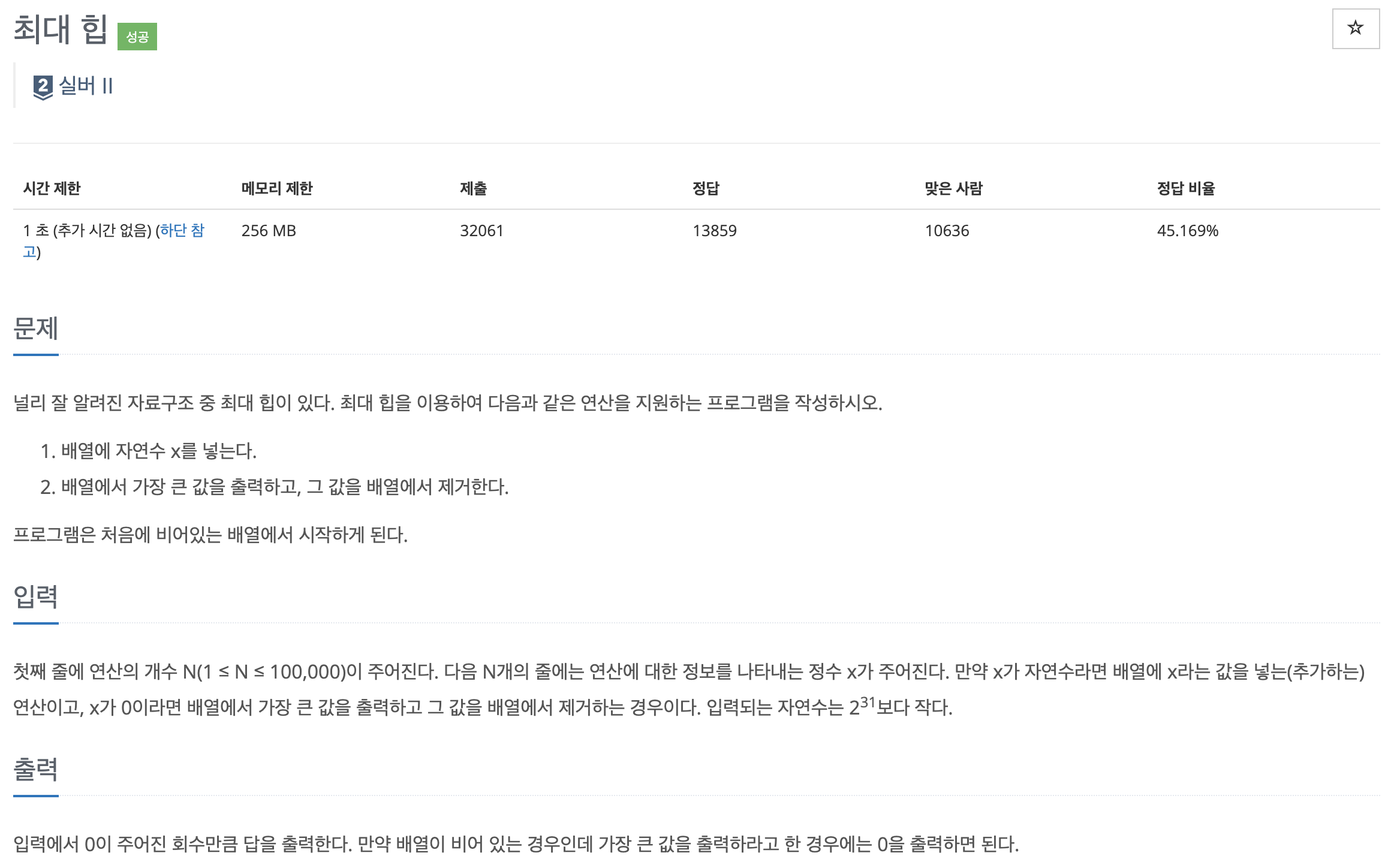문제
 문제 바로가기> 백준 11279번: 최대 힙
문제 바로가기> 백준 11279번: 최대 힙
풀이
최소 힙을 최대 힙으로 바꿔 주기 위해 (-x, x) tuple을 집어 넣었다.
def solution():
import sys, heapq
input = sys.stdin.readline
heap = []
n = int(input())
for _ in range(n):
x = int(input())
if x:
heapq.heappush(heap, (-x, x))
else:
if len(heap) == 0:
print(0)
else:
print(heapq.heappop(heap)[1])
solution()코드 개선
그런데 생각해보니 굳이 tuple을 집어 넣지 않고, x의 마이너스 값을 집어 넣은 후에 출력할 때 마이너스만 붙쳐주면 메모리와 시간을 절약할 수 있었다.
def solution():
import sys, heapq
input = sys.stdin.readline
heap = []
n = int(input())
for _ in range(n):
x = int(input())
if x:
heapq.heappush(heap, (-x))
else:
if len(heap) == 0:
print(0)
else:
print(-heapq.heappop(heap))
solution()C++을 이용한 풀이
priority queue를 이용하여 쉽게 풀 수 있다.
#include<iostream>
#include<queue>
using namespace std;
int main(){
ios_base::sync_with_stdio(false); cin.tie(NULL);
priority_queue<int> pq;
int n; cin>>n;
for(int i=0; i<n; i++){
int tmp; cin>>tmp;
if(tmp == 0){
if(pq.empty()) cout << 0 << '\n';
else {
int top = pq.top(); pq.pop();
cout << top << '\n';
}
}
else pq.push(tmp);
}
}